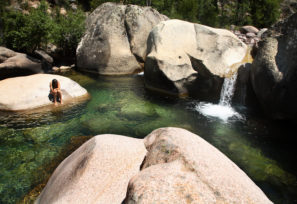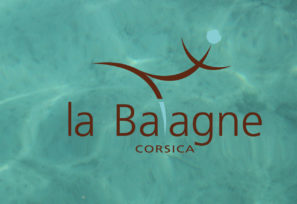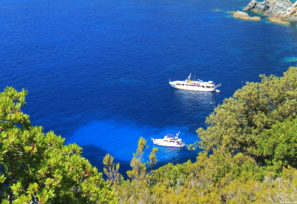In many villages in the Balagne, you will meet the local people, often the older generations, sitting on a bench watching the world go by; they are the living memory of their region and they love talking to passing visitors and telling them all about their region. In order to be able to talk to them more easily, we would like to give you a few basic words in the Corsican language… Allora, parlate corsu incù noi !
Let’s begin… principiemu
Of course, the first thing to learn is how to say hello to someone, how to greet them; in Corsican we say fà mottu à qualchisia.
Then, to begin a conversation, what could be better than… Hello, my name is Peter – Salute, mi chjamu Petru (pronounced “saloudè mi diamou bédrou”), continue with… See you soon – à prestu – Thank you – à ringrazià vi or vi ringraziu or even grazia – then end with… Goodbye – à vedici.
Let’s continue with some basic vocabulary… qualchi parolle
Now you can learn how to get about or how to ask for directions… right, à diritta – left, à manca – up, sopra – down, sottu – next to, accantu for places and à fiancu à for people.
For compass directions… North, u nordu – South, u meziornu – East, u levante meaning the rising) – West, u punente (meaning the setting).
The days of the week, months and seasons… i ghjorni, i mesi è e staggioni
The 4 seasons… Winter, l’invernu (l’inbernou) – spring, u veranu (ou wéranou) -summer, l’estate (l’échtadè) – autumn, u vaghjime (for this one, we’ll give you some help for the pronunciation! ou wadiime).
The days of the week… Luni, marti, marcuri, ghjovi, vennari, sabbatu è dumenica.
The months of the year (the pronunciation becomes a bit more difficult here!)… ghjinnaghju (diinaddiou), farraghju (faradiou), marzu, aprile, maghju (madiou), ghjunghju (dioundiou), lugliu (louliou), aostu, sittembre, ottobre, nuvembre è dicembre.
At the seaside… u mare
While you are on holiday in Corsica, you will msot certainly spend a day at the seaside…
the beach, l’arinella (fine sand), a piaghja (plain), u rinaghju (beach or sandpit), rocks, i scoglii– fish, i pesci – sea urchins, i zinni – squid, u totanu (ou dòdanou).
Culture and traditions… cultura è tradizioni
… will surely visit one of our villages with a concert in the evening in a church…
singing, u cantu – polyphony, a pulifunia (stress the i for the pronunciation: poulifounìa) craftsmanship, l’artisgianatu– music, a musica – picnic (originally from Easter but the word can be used generally), a merendella.
The natural environment… a natura
Then, the next day, or the day after, you might decide to go for a walk through our forests and enjoy the freshness of the pure and fresh water of our rivers…
a walk…una spassighjata, una girandulata -river, u fiume – forest, a furesta – mountain, a muntagna – freshness, a friscura.
Flora, i fiori è l’arburi… maquis, a machja – arbutus, l’albitru – oak, a leccia – white vines, a vitalba – cistus, u muchju.
Fauna, l’animali … wild pig, u cignale – red kite, l’altore – hedgehog, u ricciu (pronounced ou ritchou) – falcon, u falcu – blackbird, a merula – seagull, l’acula marina – mouflon, a muvra – goat, a capra – ewe, a pecura.
Heritage sites… u patrimoniu
Finally, you will most probably pass by these heritage sites which many visitors like to take photos of…
mulch, u pagliaghju – the sheep pen, a mandria – church, a ghjesgia – oil mill, u fragnu – house, a casa – menhir, a stantara (this one is here for the bravest among you who would like to go the extra few miles to visit the prehistoric sites in the South of Corsica!).
You have now understood that the most common sounds and the most difficult to pronounce are GHJ, which is pronounced “dieu”, the CHJ which is pronounced “tieu” and finally the letter U which is pronounced “oo”; for the rest, all you have to do now is give it a go!
In our useful links section, you will also find online dictionnaries and a website about the Corsican language.
The songs of the Balagne…
The Balagne is a land of inspiration for all artists; actually while you were visiting the area, you must have run into our craftspeople, admired the photos of our photographers and seen a wide range of concerts and festivals put on by our artists. We would also like to draw your attention to these two songs from the group I Chjami Aghjalesi who were inspired by the Balagne.
The first, Culombu, refers to Christopher Colombus, the famous explorer and his hometown of Calvi.
U Celu di Balagna speaks of all the beauty that can be found in the Balagne landscapes and heritage sites.
A big thanks to @I Chjami Aghjalesi for this musical gift








